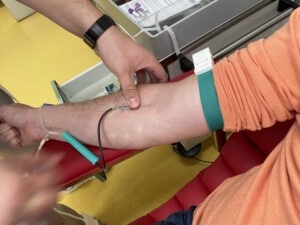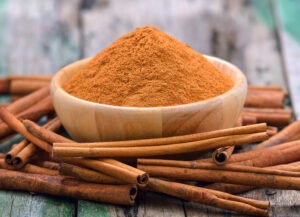
We’ve all heard the phrase you are what you eat. But could the opposite be true? Should you choose what you eat based on your biology?
Fans of the blood type diet believe that this is the case. Let’s take a closer look at what this diet is, the science behind the theory, and whether this approach is really worth it.
What is the blood type diet?
Everyone has a blood type, even if you don’t know what yours is. Blood type, also known as ABO group, depends on the types of proteins or sugars found in your blood cells. These substances determine whether you have blood types O, A, B, or AB.
The blood type diet is based on the idea that what type of blood you have is key to your overall wellness. It was introduced in 1996 by naturopath Peter D’Adamo, who suggested that following this diet plan can help you stay healthy, lose weight, and avoid disease. Here’s a look at each in more detail (D’Adamo, 1996).
Type O
D’Adamo says people with type O blood who don’t follow a type O-specific diet are susceptible to things like inflammation, ulcers, and arthritis.
This diet plan is high in animal proteins and fish. It avoids carbohydrate-filled foods like wheat, grains, legumes (lentils, kidney beans), and caffeinated drinks like coffee and soda.
It includes anti-inflammatory foods packed with vitamin K (like liver and leafy greens) and calcium (like broccoli, salmon, and sardines). The O blood type lifestyle includes vigorous aerobic exercise such as running.
Type A
According to D’Adamo, those with blood type A are at risk for immune system diseases including cancer, diabetes, and heart disease, if they don’t follow a type A-specific diet.
The A blood type diet leans vegetarian, eliminating red meat. Some animal products are allowed, though.
The diet includes foods such as tofu, seafood, whole grains, legumes, and fruit and recommends incorporating foods high in vitamin B12 and folic acid (like leafy greens, salmon, broccoli). Recommended activities include relaxing and centering exercises like yoga.
Type B
People with blood type B who don’t follow the proper diet are more likely to live with depression and stress, D’Adamo suggests.
The type B diet is varied and includes red meat, fruit, vegetables, and dairy products. Foods to avoid are chicken, wheat, and certain legumes. Recommended activities include moderate, varied exercises like swimming, hiking, or walking.
Type AB
The AB blood type is rare and has similarities to both types A and B. The AB diet reflects this.
This diet incorporates fish, poultry, fruit, and vegetables but avoids red meat, coffee, and alcohol. It encourages foods packed with vitamin C, like citrus fruits. The type AB lifestyle involves calming exercises and relaxation techniques.
Are there any health benefits to the blood type diet?
The blood type diet recommends eating healthy foods high in protein, vitamins, and healthy fats. It also steers clear of things that can be unhealthy in large quantities, like caffeine.
It also draws attention to chronic conditions––like cardiovascular disease, inflammation, and high stress––which might encourage participants to assess and modify their risk factors.
We all know that eating the right foods can help us stay healthy, but are the right ones really different for each blood type?
One study showed that people assigned the A blood type diet had better blood pressure, lower cholesterol, improved insulin levels, and more weight loss. But the findings held true for people who followed the diet and didn’t have type A blood. Study participants with B, AB, and O blood types saw these parameters improve, too, on the type A diet.
A more recent study followed individuals who went on a vegan, low-fat diet for 16 weeks. In the end, patients had lower cholesterol and greater improvements in their weight, but there was no blood type-based differences.
So far, researchers have not found enough evidence from clinical trials to say whether the blood type diet offers any real benefits.
Risks and warnings of the blood type diet
It might be difficult for some people to stick to the blood-type diet. Personal preferences and cultural practices might involve foods that aren’t permitted for people with certain blood types.
Food allergies might also make it difficult for people to eat the recommended foods for their blood type. In addition, scientists have found that elimination diets, which limit the types of foods a person can eat, might lead to nutritional deficiencies.
The blood type diet suggests healthy foods and activities for each blood group, but it might be challenging to adhere to. There is also very little evidence from clinical trials that it works.
There is no harm in sticking to a healthy lifestyle plan that involves eating nutritious foods and exercising, but it’s unlikely that the blood type diet will be anyone’s saving grace. Speak with a healthcare provider or a nutritionist about the best type of diet plan for you.





































